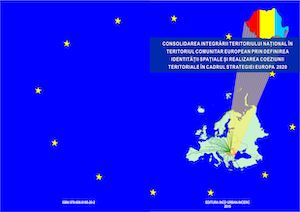
Consideraţii ecologice şi geografice privind potenţialul eco-energetic al României
The chapter presents several ecological and geographical considerations on and geospatial analyses of the eco-energy potential of Romania.
More...We kindly inform you that, as long as the subject affiliation of our 300.000+ articles is in progress, you might get unsufficient or no results on your third level or second level search. In this case, please broaden your search criteria.

The chapter presents several ecological and geographical considerations on and geospatial analyses of the eco-energy potential of Romania.
More...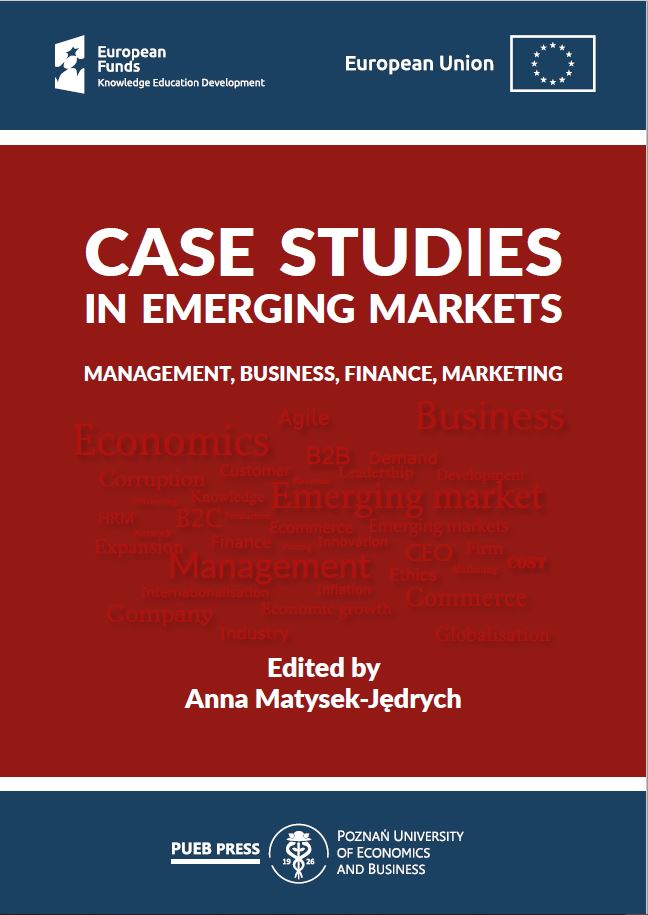
1. Conceptual remarks. 1.1. Internationalisation—what is it? 1.2. External determinants of firm’s internationalization (social / cultural environment, legal environment, economic environment, political environment, technological environment). 1.3. Modes of foreign market entry. 1.4. The Uppsala model of internationalization. 2. The Guinness brand: Historical evolution and entry strategy into Nigeria. 3. Guinness Nigeria: Market share, portfolio and brand values. 4. Guinness Nigeria: Survival in Nigeria based on the chosen mode of entry and business sustainability strategy. 4.1. Foreign market entry mode and business survival of Guinness Nigeria. 4.2. Guinness Nigeria business sustainability strategy: A critical element for survival within the Nigerian business environment (product innovation and diversification strategy, leadership in alcohol in society, building striving communities, reducing our environmental impact). 4.3. Challenges to Guinness Nigeria’s continued survival in Nigeria.
More...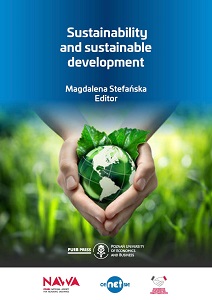
The aim of current chapter is to present the genesis of 2 related phenomena: the sustainability and sustainable development concept, as well as the range of definitions in order to suggest a definition that can be applied in the whole e-book. The other objective is to present the Corporate Social Responsibility concept which, nowadays, is recognised as the process through which business contributes to sustainable development implementation. It was highlighted, however, that in the current situation, sustainable development may be achieved by new types of businesses built on the principles of saving resources (by recycling or reuse). For traditional businesses, based on non-renewable resources, CSR leading to sustainable development is a real challenge as it requires re-shaping business models.
More...
The United Nations Global Compact represents one of the biggest voluntary initiatives under the United Nations organisation. This initiative was founded in 2000. It is strongly connected with Corporate Social Responsibility and efforts in achieving sustainability as it is a call for businesses worldwide to contribute towards sustainable world development in economic, social as well as environmental areas. Until last year, when the UNGC celebrated its 20th anniversary, it already had over 11,500 participants all around the world. This fact can have significant impact on achieving its goals which were set in the form of 10 principles divided into 4 main areas, where the positive and sustainable operating of business as well as other types of organisations is much than needed today. Therefore, in the text of this subchapter, the basic information about the very Global Compact initiative is presented, as well as its 10 universal principles set in the areas of human rights, labour standards, environment and anti-corruption, through which the participants are required to take strategic actions in achieving broader societal goals, mainly current Sustainable Development Goals,the interconnection of which is also presented and highlighted. The aim is to help understand the importance of this UN initiative for creating a better and sustainable world by incorporating business and other organisations.
More...
The described project assumes the development of a new method for solving the problem of homelessness, in particular, with regard to the field of supporting people in an exceptionally difficult situation or those suffering from mental disorders and/or addictions to achieve independence and overcome problems. The aforementioned project is the first attempt at implementing this method in Poland. The basic assumption of the method is to solve the main problem of a person in the homelessness crisis, which is the lack of housing, and only then to provide support in solving other problems. The aim of the chapter is to give rise to discussion on the innovative solutions implemented by one of the local government to remedy the problems of homeless people. The issue is based on SDGs. The second described case study is the “Safe Future of People with Intellectual Disability”—implemented by the Polish Association for People with Intellectual Disability—reflecting the tested model based on support circles, i.e. social support networks in order to empower people with intellectual disabilities. The main objective of the “Safe Future” model is to develop and implement solutions that ensure legal, financial and social security of people with intellectual disabilities in situations where they have lost the support of the family. The concept of the support circles tested in this model is based on built networks of connections rooted in the social capital generated among the local community. The last example of sustainable development in the non-governmental sector is Social Cooperative Sunny Hill—as a social enterprise it is a unique entity on the market. It conducts economic activity, the main goal of which is not profit, but social and professional re-integration of people at risk of social exclusion. Contrary to a traditional enterprises, it does not distribute the profit among shareholders, but allocates it to social purposes.
More...
One of the sustainable goals refers to the tourism services sector—by 2030, devise and implement policies to promote sustainable tourism that creates jobs and promotes local culture as well as products. Responsible tourism (RT) means to: – minimise the negative impact on the economic, environmental and social sphere (3P model); – generate greater economic benefits for local communities; – support the welfare of host communities; – improve working conditions and access to the tourism industry; – engage local residents in making decisions that will have influence on their lives, surroundings and possibilities; – support the preservation of heritage in the sphere of nature and culture for maintaining diversity; – provide tourists with new experiences through closer and more meaningful contact with local culture and people. Below, of the following forms of tourist services are discussed—all-inclusive vacations and Airbnb. The goal is to invite readers to take part in the discussion on those popular forms of spending leisure time—how to make them—if possible—more sustainable.
More...
Purpose: The aim of this study is to indicate the role of the state in the pursuit of sustainable development of Poland. Design/methodology/approach: The authors assume that historical factors underlie the differentiated development of Polish regions. A critical review of the literature on historical determinants of development of Polish regions was conducted. International legal conditions calling on Poland to take action to reduce adverse climate change are presented. The amount of state budget expenditure on tasks related to sustainable development of the country is discussed. Secondary data from the reports of the Council of Ministers were used. Findings: Differences in the level of the development of Polish regions are historically determined. Compared to other countries, the degree of Poland’s achievement of sustainable development goals is satisfactory, as it ranks 23rd in the world ranking (out of 193 possible places). Budget expenditures on tasks contributing to the achievement of sustainable development goals are relatively small. Originality and value: It is pointed out that in the past, the amount of spending on state development financing has varied. Historical conditions continue to affect the uneven development of individual regions. The authors suggest that the unsatisfactory level of the development of some regions is due not so much to the lack of access to funding sources, but to the mentality of people living in these areas.
More...
Purpose: The author aims to determine the estimated cost of adaptation of the Polish economy to a zero-emission energy system, taking into account the social aspect. Design/methodology/approach: The chapter shows that one of the causes of adverse climate change and increased air pollution in Poland is the increased burning of fossil fuels. It presents actions taken by international organizations to achieve climate neutrality. Against this background, Poland’s attitude towards the problem of ensuring climate neutrality of the economy is presented. The author looks at the problem of climate neutrality through the prism of the so-called social contract for the mining industry. This agreement takes into account the economic losses that the inhabitants of the Silesian Voivodeship will suffer in connection with this adaptation. The author assesses the legal feasibility of the miners’ demands. Findings: Poland should achieve climate neutrality by the early 2030s at the latest. Therefore, the hard coal mines should be already closed now rather than their extraction for each ton of raw material subsidized. In order to achieve climate neutrality it will be necessary to incur very large financial outlays, including for the safe closure of the mines and cash severance packages for the miners. The provisions of the social agreement for the mining industry are contrary to EU law and the climate goals set out in the so-called Paris Agreement. Originality and value: It was pointed out that Polish politicians have an ambivalent attitude towards the energy transition. They do not want to give up a strategic resource for Poland. Thus, they ignore the risks associated with the continued use of coal on a massive scale.
More...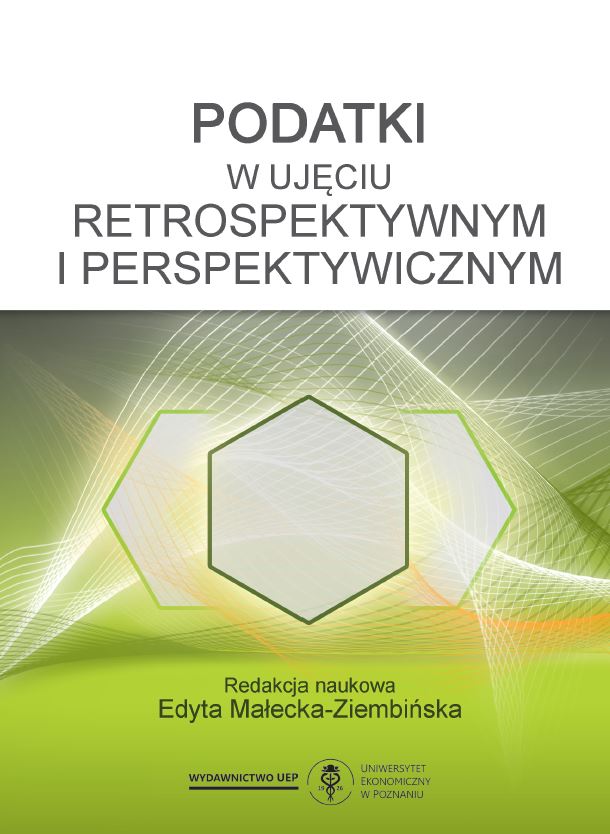
Purpose: Contemporary world’s challenges related to the emerging environmental issues imply a necessity of developing an appropriate set of environmental management tools. The aims of the chapter are to present general principles of ecological taxation and to demonstrate the role of ecological taxes and fees as instruments that contribute effectively to the achievement of environmental protection policy objectives. Design/methodology/approach: The chapter presents a critical review of the academic and institutional research on ecological taxation and the results of a data analysis on environmental taxes in the European Union countries in 2019. It has been divided into four sections. The first and the second ones were devoted to the theoretical, functional and developmental aspects of ecological taxes and fees. Then, the indicators showing size of environmental tax burden in European Union countries were evaluated. The last section focused on a wide range of tax mechanisms and tools that would potentially improve environmental policy around the world. Findings: Ecological taxes and fees play a leading role when it comes to the use of the economic instruments for environmental policy. It is indicated that appropriately designed and implemented ecological tax system can provide comprehensive and effective support for achieving environmental objectives. It is essential to create new ecological tax mechanisms, as well as to modify existing ones to adapt them to the upcoming climate, environmental and energy challenges. Keywords: ecological taxes, ecological fees, environmental policy, ecologisation of the tax system.
More...
The occurrence of risk in economic activity is a natural phenomenon that requires management aimed at limiting the impact of risk materialization on the situation of enterprises. This phenomenon refers also to small and medium-sized enterprises, which are an extremely key element for the economy both in terms of the number of such entities, their role in generating new jobs, but also the added value. Unfortunately, the problem of risk identification and management in SME companies is at a much lower level than in the case of large entities. Therefore,in the case of small and medium-sized enterprises it seems crucial to have a proper approach to risk identification and management, especially in times of intensive changes in the environment, which in turn may provide an opportunity for new areas of risk to appear. Studies have shown that entrepreneurs are slowly increasing their awareness of the possibility of the occurrence of various types of risk and their consequences, but this increase is often selective. However, this is the basis for the development of appropriate mechanisms and procedures that will allow to conduct business effectively and safely in a changing, often unpredictable environment in the future. The purpose of the study is an attempt to identify and assessthe various areas of risk encountered in the small and medium-sized enterprise sector and their importance.
More...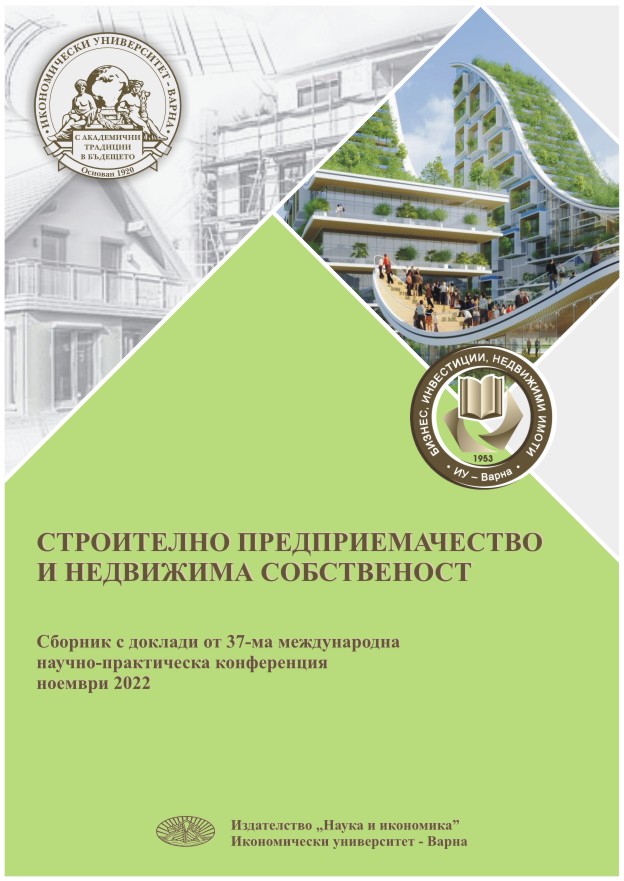
The beginning of the 21st century was faced with the demands of the technical revolution 4, environmental problems and ensuring sustainable development. This situation is caused by the extremely rapid growth of the human population and the enormous use of natural resources. At the same time, over the past three years, the COVID-19 pandemic has slowed down the countries' economic development. To restore countries' economies, Recovery and Sustainability Plans have been proposed. The report aims to show and analyze the challenges facing the construction industry regarding the implementation of the National Development and Sustainability Plan.
More...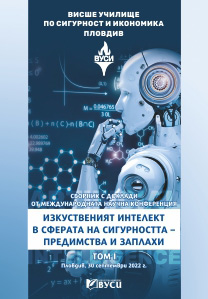
The circular economy creates new opportunities by introducing ecological principles in manufacturing. The use of technology and artificial intelligence in the circular economy in the environment will contribute to creating new jobs. Digitalization helps to use resources more efficiently and optimize processes and sustainable growth. The skills of the future are directly related to the digital and green transformation of the economy.
More...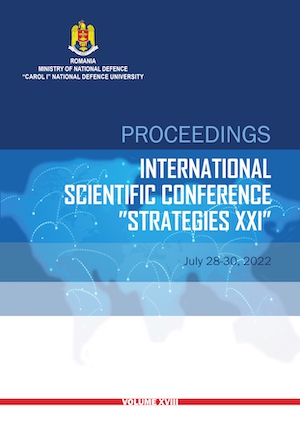
In the early 2022, the world economy is recovering from the decline caused by Covid-19 pandemic –the central banks being prepared to gradually withdraw fiscal and monetary support. The Russian military’s invasion of Ukraine and subsequent sanctions have reversed this trend and risks and uncertainty have suddenly returned amid rising energy, food and other important commodity prices, inflationary pressures, deterioration in financial and labor market conditions. This paper outlines the general framework of economic sanctions, reviews the sanctions adopted by the international community against Russia in the first 100 days of brutal, unjustified and unprovoked illegal military aggression against Ukraine, and identifies their effectiveness and impact on Russia’s economic and financial system.
More...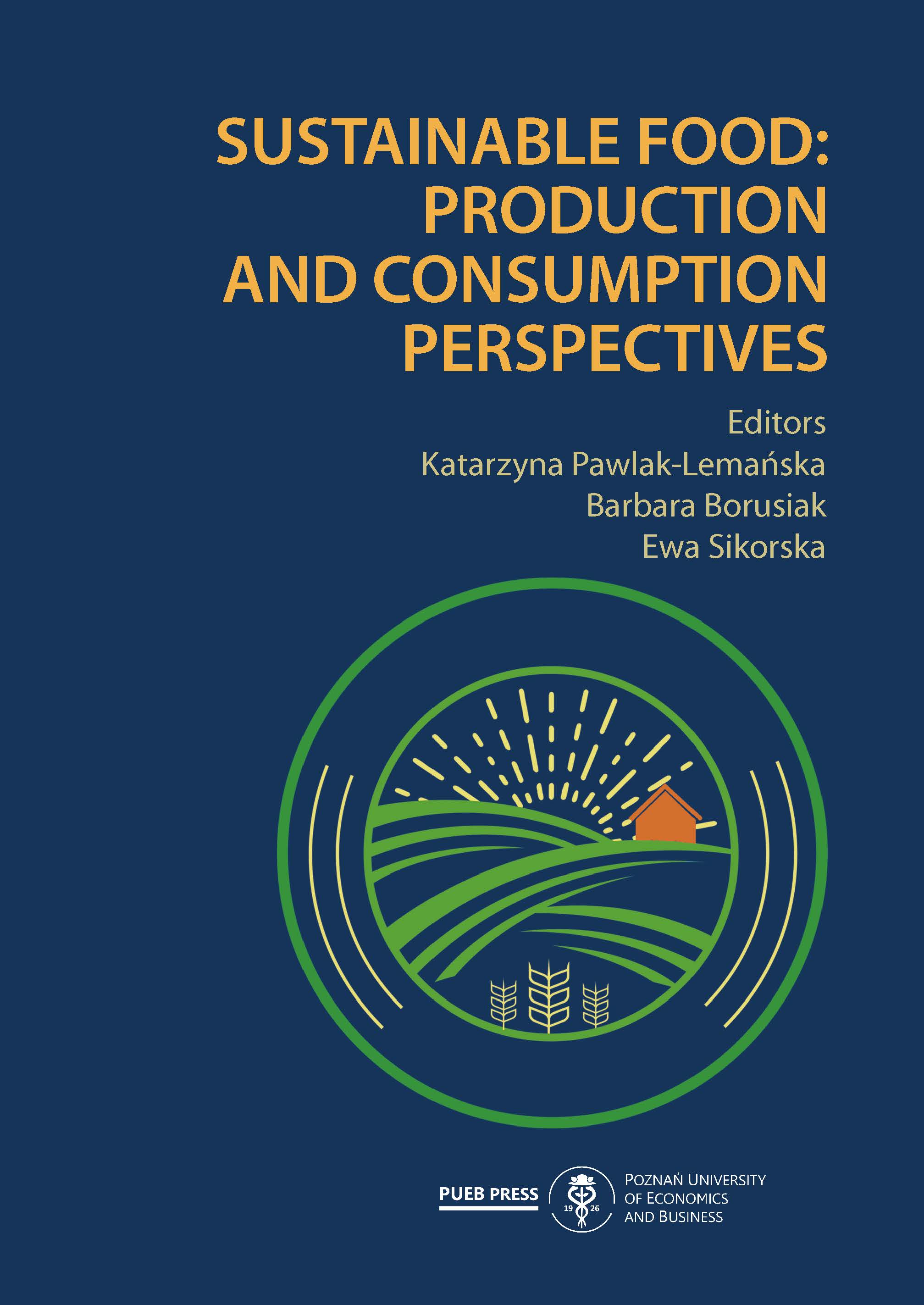
Sustainable food consumption is a crucial aspect of achieving a sustainable future. However, changing people’s attitudes towards food can be a difficult task. In this article, we will conduct a bibliometric literature review to explore the current state of research on shaping sustainable food consumption attitudes. The study uses a sample of 922 papers in various bibliometric analyses. The authors use citation and collaboration analysis to determine the most significant authors and journals, and examine the relationships between the main authors and institutions. Next, they conduct content analysis, using bibliographic coupling, to determine the main areasof research within sustainable food consumption attitudes. The chapter attempts to identify the most important authors, journals and trends in each field.
More...
Food waste is one of the major problems that humanity needs to solve. The gargantuan amount of food wasted each year, estimated at around 1 billion tonnes, creates a range of environmental, economic and ethical problems. Unfortunately, food is wasted to the greatest extent by households. To a lesser extent, food is wasted by producers or intermediaries. Therefore, the aim of this article is first and foremost to identify the causes of food waste by households. To do this,a conceptual framework has been adopted. It assumes that household food waste originates in three predictable stages—when shopping, storing and serving. In other words, households waste food because they do not prepare the food they purchase, they do not serve the food they prepare, and they do not consume the food they serve. The considerations in the paper are based on the available literature and secondary data.
More...
The main objective of this chapter is to present solutions designed in order to redistribute surplusfood as a food waste prevention tool. Food surpluses are generated both in supply chains andin households. This chapter presents the surplus food redistribution system structure in terms of entities included into it. Three main types of SFRS institutions will be presented: food banks operating both as front-line and warehouse entities, social supermarkets and food sharing systems, which work as initiatives based on some premises (physical places) where food may beleft and taken from, as well as initiatives operating thanks to Internet platforms. Three categories of these platforms are characterised in this chapter: the “sharing for money” model, which is primarily a B2C for-profit model to reduce waste and, at the same time, generate revenue, the “sharing for charity” model in which food is collected and given to non-profit organisations, and the “sharing for the community” model which is a B2C or C2C model where food is shared amongst consumers.
More...
The Czech policy vis-a-vis Germany experienced mostly positive dynamics but also a lack of coherence. Existential interests were not at stake – on the contrary, they constituted a positive background for the relations: Czechs and Germans as allies guarantee each other’s security, sovereignty and territorial integrity.
More...
The Mediterranean and the Middle East, although they did not fall under the priorities of Czech foreign policy after 1989, had to be taken into account by the Czech Republic after it joined NATO and the EU due to the wider interest of the trans-Atlantic allies in regional stability and security. For this reason, issues like terrorism, immigration, the Middle East peace process, proliferation of weapons of mass destruction, peacekeeping missions, and the Euro-Mediterranean cooperation were among the most frequently discussed topics in the Czech political scene during the 2000s. The Middle East agenda have affected our relations with allies and they have been the subject of home competition on left-right axis. The only long-term Czech interest relating to the region was the mainly rightist government’s attempt to reduce the Czech Republic’s one-sided dependence on imports of Russian oil and gas, which was demonstrated by the support for the Nabucco pipeline project during the Czech EU presidency.
More...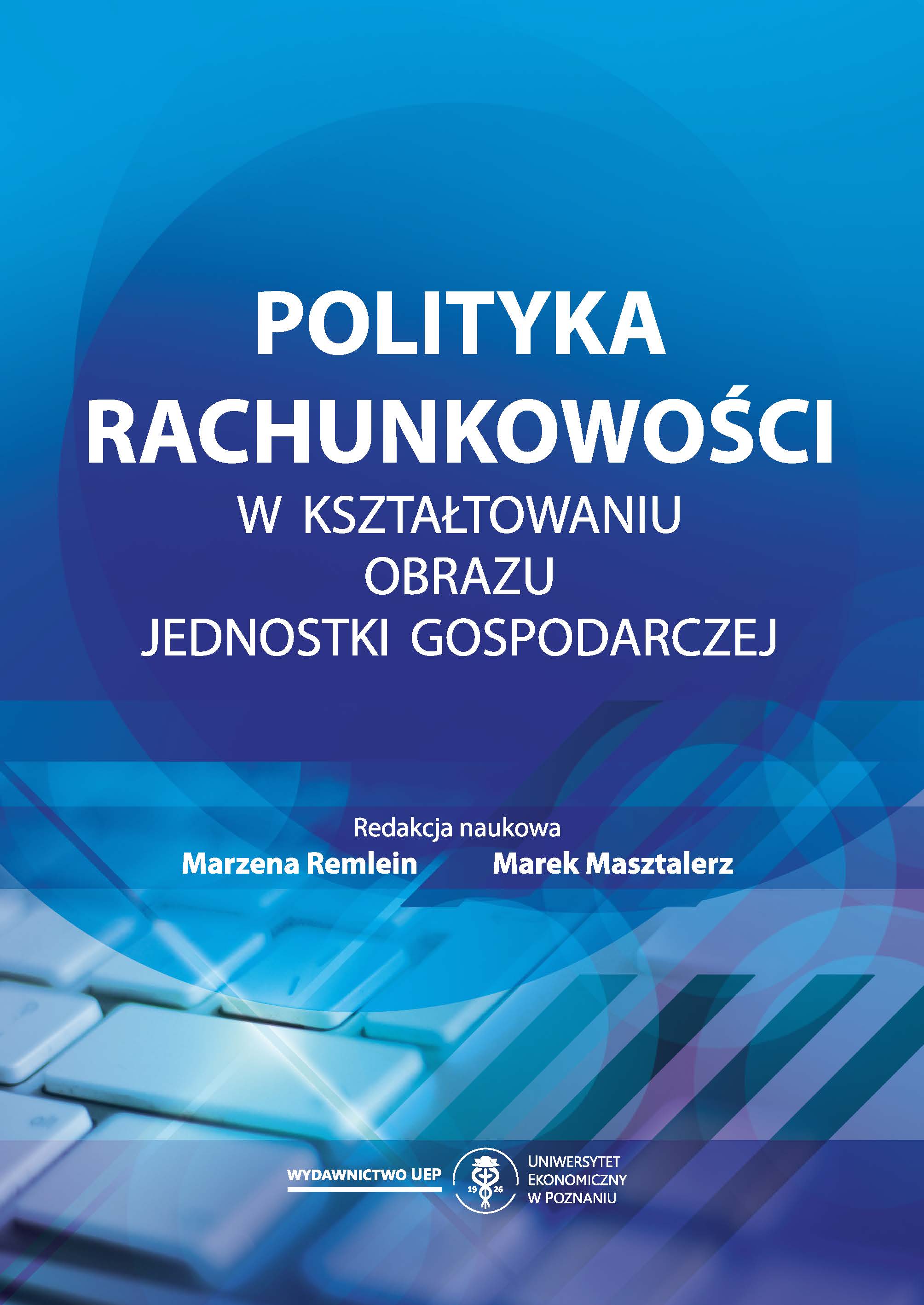
Corporate governance describes the principles, relationships and processes under which an entity is managed and its management bodies are controlled. The aim of the chapter is to assess the accounting policies of listed companies from the point of view of their compliance with good corporate governance practices for sustainable development. Using the source analysis method, the essence and legal basis for shaping corporate governance policy are presented. During the empirical study, five main thematic areas of non-application of corporate governance principles by companies listed on the Warsaw Stock Exchange in the WIG-ESG index were identified: (1) diversity policy towards the management board and the supervisory board, (2) reporting of ESG areas, (3) organization of the general meeting meetings, (4) remuneration of the supervisory board and managerial shares, (5) organization of internal audit.
More...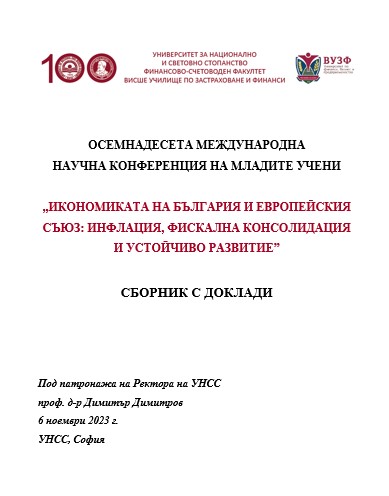
Sustainable finance as a key area continues to gain momentum as governments and corporate issuers pay increasing attention to environmental, social and governance factors, and investors, regulators and other stakeholders encourage more robust ESG practices. Interest in sustainable finance accelerated in 2020, with the COVID-19 pandemic highlighting the need for funds to help economies, businesses and people recover in a responsible way that addresses environmental and social challenges. The report is structured in three parts: a literature review exploring the success factors, benefits and challenges of issuing green bonds as identified by researchers in different countries; then we use the methodological potential of the analyzed area to formulate expert research; and we summarize the results of the study and suggestions for its further development. The results show that the issuer’s reputation, good credit rating and environmental, social and governance performance are key considerations for the success of issuing green bonds. The main benefits of green bonds are that they carry low investment risk with the ability to raise large investment amounts while providing quantifiable visible benefits. While the challenges related to the issuance of green bonds include greenwashing, the questionable role of the green bond market in environmental protection, and insufficient financial and economic benefits of issuance.
More...